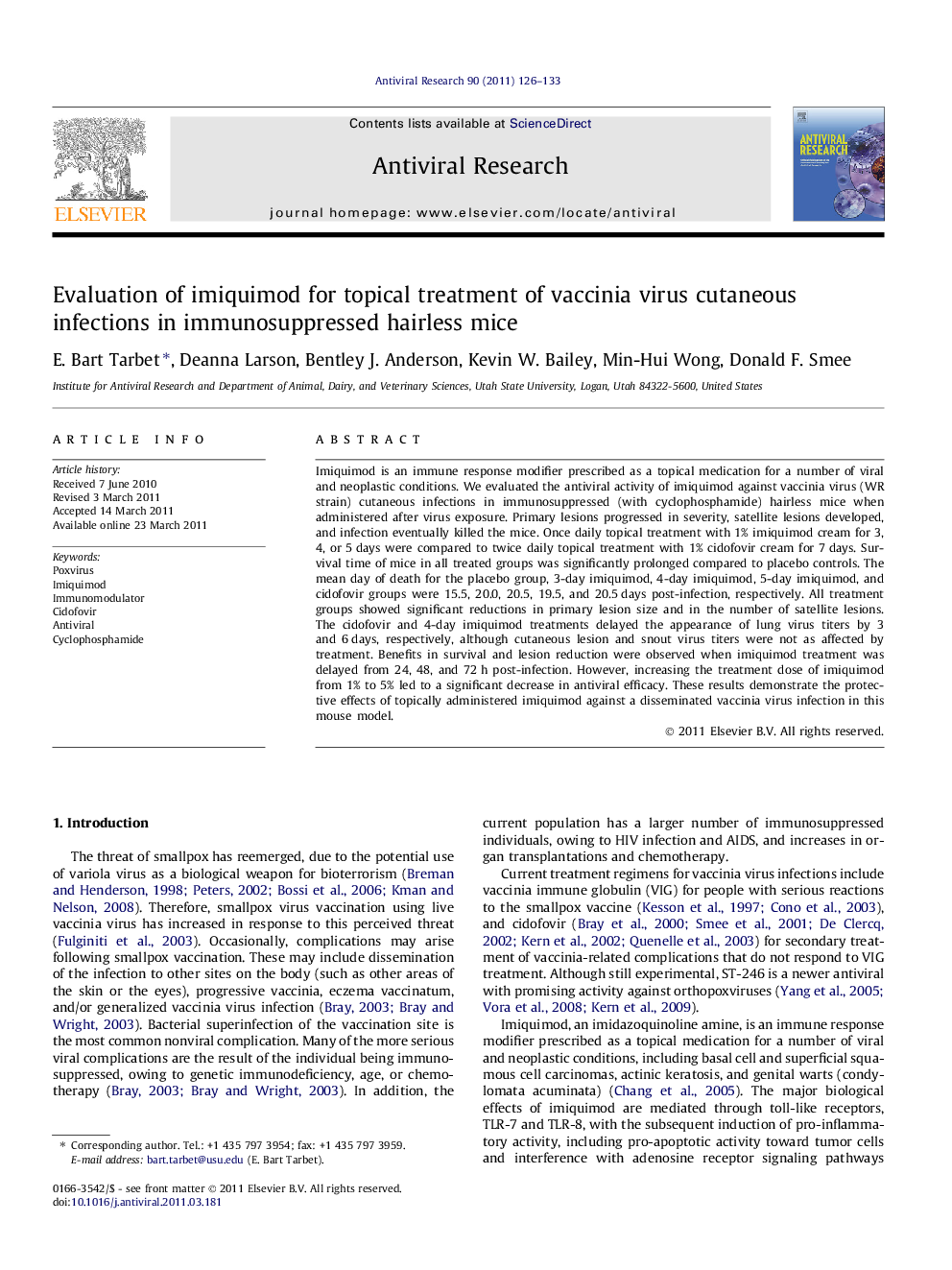| Article ID | Journal | Published Year | Pages | File Type |
|---|---|---|---|---|
| 2510247 | Antiviral Research | 2011 | 8 Pages |
Imiquimod is an immune response modifier prescribed as a topical medication for a number of viral and neoplastic conditions. We evaluated the antiviral activity of imiquimod against vaccinia virus (WR strain) cutaneous infections in immunosuppressed (with cyclophosphamide) hairless mice when administered after virus exposure. Primary lesions progressed in severity, satellite lesions developed, and infection eventually killed the mice. Once daily topical treatment with 1% imiquimod cream for 3, 4, or 5 days were compared to twice daily topical treatment with 1% cidofovir cream for 7 days. Survival time of mice in all treated groups was significantly prolonged compared to placebo controls. The mean day of death for the placebo group, 3-day imiquimod, 4-day imiquimod, 5-day imiquimod, and cidofovir groups were 15.5, 20.0, 20.5, 19.5, and 20.5 days post-infection, respectively. All treatment groups showed significant reductions in primary lesion size and in the number of satellite lesions. The cidofovir and 4-day imiquimod treatments delayed the appearance of lung virus titers by 3 and 6 days, respectively, although cutaneous lesion and snout virus titers were not as affected by treatment. Benefits in survival and lesion reduction were observed when imiquimod treatment was delayed from 24, 48, and 72 h post-infection. However, increasing the treatment dose of imiquimod from 1% to 5% led to a significant decrease in antiviral efficacy. These results demonstrate the protective effects of topically administered imiquimod against a disseminated vaccinia virus infection in this mouse model.
